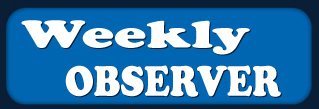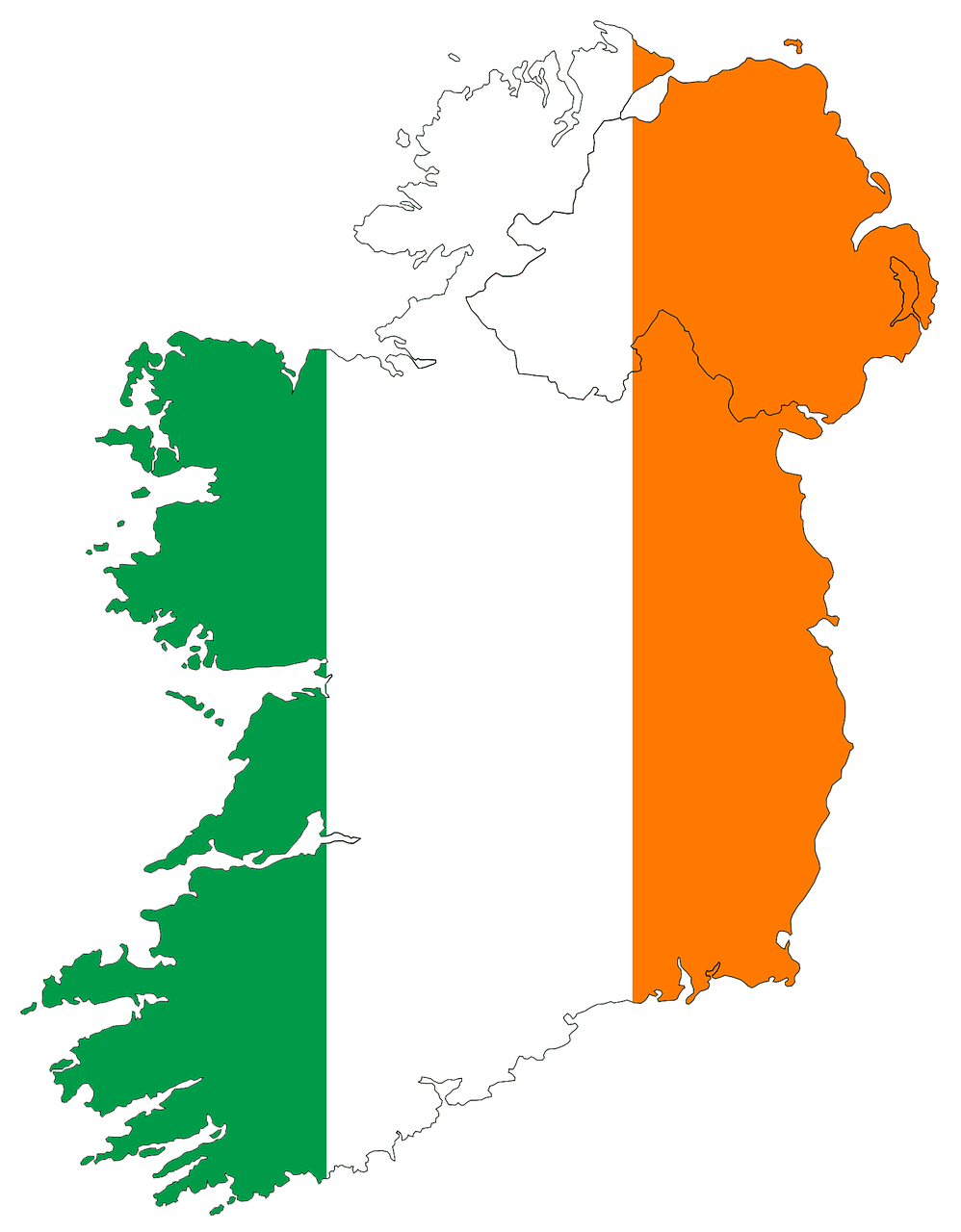
The branches were to be repurposed to focus more on account opening, financial planning, mortgages, loans, savings and investments, the bank said. “With digital usage soaring, the cost of providing cash services has become increasingly unsustainable. As a result, cash, ATM and cheque services will be removed from these branches but customers will continue to have efficient access to cash in their communities.” This would inevitably have meant customers of the bank travelling elsewhere for services, which would have had a direct impact on businesses within the town. The impact of such a move has already been felt in Rathkeale, since the closure of Bank of Ireland, and the conversion of AIB to a service only bank. It was a dire move for businesses in Rathkeale, since 80% of business within the town was conducted in cash.
Currently, AIB is trying to win over some of the 1 million accounts that are having to be moved or closed as a result of Ulster Bank and KBC’s wind down.
The bank said that it will continue to have branches in 95% of the locations where Ulster Bank and KBC branches are closing. That is indeed very convenient for customers of the closing banks, but not for loyal customers of AIB. The Taoiseach asked that the bank would reconsider its position, in the face of public outcry. On Friday, three rural Independent TDs, Mattie McGrath, Michael Collins and Danny Healy Rae sought a meeting with management of AIB in Dublin. Shortly afterwards, the Bank did an about turn in its decision. Mattie McGrath TD said, “A great win for rural towns and communities and people power but the fight to stop the push to a cashless society must continue.” A spokesman for the bank said: “In recent years there has been a dramatic increase in the use of digital banking services and a decline in branch visits and cash usage. In AIB’s case, there are almost 3 million daily digital interactions compared with 35,000 customer branch visits. There has been a 36 per cent decline in cash withdrawals from ATMs and a 50 per cent fall in cheque usage over the past five years. AIB has also seen a fall of almost 50 per cent in branch over-the-counter teller transactions, while mobile and online payments have increased by 85 per cent in that same timeframe.”
It added: “It was in the context of this evolving banking environment and the opportunity to enhance its long- standing relationship with An Post that AIB took the decision to remove cash services from 70 of its branches. However, recognising the customer and public unease that this has caused, AIB has decided not to proceed with the proposed changes to its bank services.”
The move would have seen the branches in question no longer have notes, coins, cheques, foreign exchange or bank drafts.
Before the news broke on Friday, I spoke to several people in Abbeyfeale, including businesses. The mood was grim, people hailing the proposal as just another move to further decimate rural towns and small businesses. Local Funeral Director James Harnett said “Downgrading the services at AIB Abbeyfeale would be another nail in the coffin of rural Ireland and make a mockery of the much-feted government Town and Village Renewal Scheme. What is the point of the scheme if a bank, bailed out by the state was allowed to undermine all the work of communities throughout Ireland?” He later added “I’m delighted that our local leaders have stood up for us. Democracy works after all!”
We can’t argue with the figures stated by the bank regarding the decline in the use of cash. But AIB and other Banks must acknowledge that in the last two and a half years, people had no option other than to use card payments for all online transactions, since shops and services were closed to us. We still had to pay for groceries, fuel and other products. The old Cash on Delivery Service was not permitted. Even when restrictions were lifted and we were allowed back into shops, many outlets declined the use of cash, claiming it as a “Covid hazard”. There is, however, a lesson here for all of us, and that is that we should consider using cash as often as we can, because if we don’t, it’s more than probable that in the not-too-distant future, cash will be a thing of the past. If we find it hard to imagine a world without cash, and that governments and financial institutions would never entertain a cashless society, maybe we should consider this.
Formerly known as the European Management Forum, (EMF) the World Economic Forum is an international non-governmental and lobbying organisation based in Switzerland. It engages the foremost political, business, cultural and other leaders of society to shape global, regional and industry agendas
Six years ago, in 2016, the World Economic Forum reported the following on its website. “Imagine a world where all money is digital. Instead of carrying coins and notes in their purse, people would keep digital currency units in electronic wallets on phones, watches or other electronic devices. Paying at the farmer’s market, giving the kids pocket money for lunch, settling the tab at a bar—all of this could happen digitally the way cash is handed over today: in real time, irreversibly, with no additional fees, using legal tender fully backed by the faith and credit of the national treasury.” It also stated the “societies would not go completely digital overnight. Instead, central banks could start issuing digital currency units alongside notes and coins as base money and adjust the mix over time, according to uptake. Once critical usage levels are reached and network effects kick in, universal adoption could happen very quickly.” It appeared that a plan of action was being established.
At its AGM in 2020, a further WEF report stated “If everyone were connected to an end-to-end e-payment infrastructure – a cashless environment – there would be transparency in money flows. Whether it’s international aid or private investment, if everyone in the chain were connected digitally, you could see where the money went and how it was spent. Any sums appearing outside of that framework could immediately be flagged and investigated. This would narrow the focus for law enforcement and forensic accountants, making it easier to target and recoup hidden money”
Roll on to 2022, the WEF website is stating “To achieve the full potential of digital currencies, it will be crucial for countries to sign new types of trade agreements to enable market access for private issuers of digital currencies, to allow payments to operate in conjunction with each other, and to allow data to flow freely and with trust. Singapore, Australia, the UK, Chile and New Zealand have championed such forward-looking trade agreements.” All this information is freely available on the WEF website.
There is, on the one hand, a certain merit to a cashless society. In simple terms it would mean that thanks to artificial intelligence, there would be a trail for every unit of digital currency, completely transparent, potentially wiping out the crime of money laundering, or hiding money from revenue, and since it would exist virtually, stealing money would be futile and so could also potentially eliminate burglaries and robberies of valuables, since the market for hard cash would be over. The less attractive side to a cashless society would be that governments and banks would know and record every cent that individuals spend, where, when and how they use their money. We could argue that they already have this information, and that’s true in some part. But would the surveillance stop at that? And how much faith can we have in artificial intelligence, and is it open to abuse of systems? After all, we now have data centres whose purpose is to collect, store, process, distribute or allow access to large amounts of data. There are 53 operational data centres in Ireland, with 8 more under construction and 26 with planning approval and are expected to double by 2025.
Again, I refer back to the World Economic Forum’s website. In 2019, it stated “From bananas and sausages to flights and fuel, we all like to keep a tally of what we spend. But whether we monitor the price in dollars, rupees or yuan, it’s unlikely we are also measuring that cost in tons of carbon produced. Everything we put in our shopping basket comes at an environmental cost. Tapping into that problem, Swedish fintech company Doconomy has launched a new credit card that monitors the carbon footprint of its customers – and cuts off their spending when they hit their carbon max. The card uses the Aland Index ( a joint venture between Doconomy and Bank of Aland, this is the global index solution for CO2 emission calculations that guide consumers in their everyday consumption towards more sustainable choices ) as the basis on which it calculates the carbon footprint of each product purchased. Users can set a maximum value for their carbon spend and learn how to compensate for their carbon footprint by contributing towards schemes to reduce or remove greenhouse gas emissions.” In 2021, Mastercard also launched the Mastercard carbon calculator in collaboration with same Swedish company.
To understand further, we need to look at what current topics are. Apart from the Ukrainian war and the pandemic, Climate Change is one of the most discussed and debated subjects of our time. For each of us to play a part, we must look beyond “reduce, reuse and recycle” since we’re told that it’s just not enough. We’ve been asked to reduce or cease our meat consumption, not to use fossil fuels, to retrofit our homes, reduce our use of petrol and diesel, reduce the national herd and more. We’re told that if we don’t, we won’t make our carbon reduction targets and not only is this detrimental to our environment, but it also bears a heavy financial cost in the way of fines to our exchequer. Some of our farming community already has a carbon credit system in place. Is it only a matter of time before individuals will also be monitored for carbon use? This could only be achieved in a cashless society. Could that be a good or a bad move? We have, after all is said and done, made a right mess of our environment through overuse of industrialisation, decimating much of the Earth’s natural resources, and are maybe guilty of not paying enough heed to our everyday actions, and how we live and work in non-sustainable ways. But could we accept a national or global centralised government to oversee our private spending of goods and services as anything other than a breach of privacy which is a fundamental right of every citizen, written into our constitution? We must also acknowledge the ease of which the Covid passport was introduced, albeit in a time of crisis. The WEF report on July 2020 said “CovidPass commits to mandatory carbon offsetting for each flight passenger, to preserve the environmental benefits of reduced air travel during the crisis” So, is it here to stay? Even though its use is largely dropped at this time, amendments to the Emergency Health Act allows for it to be reintroduced. Will we be limited in how far and how often we can travel?
Hey, I’m just saying! All this information is available for everyone to read. I’ve always followed the World Economic Forum, because it usually flags what is to come on a global scale, and that is one of its main purposes. And I do know this; what happens at the World Economic Forum should never be ignored or underestimated. It believes that a globalised world is best managed by a self-selected (a somewhat alarming notion) coalition of multinational corporations, governments and civil society organisations. Global monitoring is part of that agenda. It even has a Young Global Leader forum that educates future politicians in global matters of importance to the organisation. In 2018, Leo Varadkar was among 100 people under the age of 40 that joined the World Economic Forum’s community of young global leaders, in 2016 Emmanuel Macron, and New Zealand’s Jacinda Ardern in 2014, to name a few. Ireland is represented each year at its AGM. The Taoiseach and Tánaiste were both in Davos this year attending the meeting. This is a serious player in global affairs with far reaching influences on global economy. Furthermore, it is transparent in its intent, sharing views, policies and proposals on its website. A virtual mine of information that everyone can access.
For local communities like Abbeyfeale, the threat of cash services being withdrawn from the local bank is over, at least for the moment. In 2017 Bank of Ireland also took criticism for a similar plan to cut in-branch cash services in 100 branches and it later rowed back on it. But it is worth noting though that four years later, in March of last year, Bank of Ireland announced it was closing 88 branches completely, and while that decision caused some push back from customers and others at the time, it ultimately went ahead, ignoring the concerns of its customers, and those branches are now shut.
I’d like to add one final point. The World Economic Forum describes its partners as “leading global companies developing solutions to the world’s greatest challenges. They are the driving force behind the Forum’s programmes.” Interesting to note that AIB is one of the WEF’s Partners. https://www.weforum.org/partners
The lesson is clearly that, if we can’t or won’t accept a cashless society, we should all be using cash as often as we can, and wherever possible. If we don’t, we’re giving banks and governments a perfectly valid reason for going cashless. It’s really a case of “Use it or lose it”.





